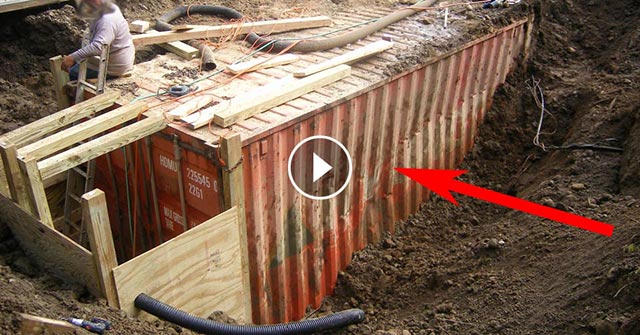Click Here To Join Our Telegram Channel for FREE daily tutorials!
A home birth is an option many women prefer: it allows them to go through an emotional and painful process in the safety and comfort of their own homes. However, not all home births are planned. In an SHTF scenario, it is possible for pregnant women to be unable to leave their homes. Alternatively, it is possible that they no longer have access to proper medical facilities. So what is the right procedure if this happens?
Dealing with a home birth under SHTF circumstances is bad enough, but it can get worse. The baby can arrive prematurely. This is not unheard of during these times. Any SHTF event can cause a lot of stress and, in turn, this can induce labor. Many pregnant women have been forced to deliver a premature baby at home for these reasons.
On its own, a premature birth is bad enough. Premature babies are susceptible to a number of health complications. Some of the most common include breathing problems and difficulties maintaining their body temperatures. However, if SHTF, going to a hospital or any other kind of medical facility is not an option.
In this situation, it is best to learn how to make do with what you have.
Signs of Preterm Labor
If you are to give birth prematurely, you will want to know as far in advance as possible. This will allow you to get ready as best you can. That is why it is important to be able to read the signs, and here are some of the most common ones.
• Stomach cramps. It is common for women to experience cramps during pregnancy. However, these cramps would not be associated with diarrhea. They are likely to occur in the lower abdominal region. They can also come and go without warning and feel similar to menstrual cramps.
• Backaches. If you experience any backaches in your lower back, you should make note of it. They can be either continuous or they can come and go. Pay special attention if you have tried various methods to ease the pain, but none of them have worked.
• Increased pressure. This is a sensation which can be brought on by premature labor. It is generally felt in the vagina or pelvis area.
• Flu symptoms. Another sign of a premature labor is experiencing some flu symptoms without feeling sickly or ill. These include vomiting, nausea, and diarrhea. However, all three symptoms are common during a normal pregnancy, too. Therefore they should not be taken as a sign on their own.
• Decreased fetus activity. It is common for a fetus to stop kicking and moving around during a preterm labor. Try to note whether your baby’s activity levels have decreased or stopped altogether.
• Frequent uterine contractions. If you are experiencing contractions at least once every 10 minutes, this can be a sign of premature labor. However, it is sometimes difficult to tell if these contractions are genuine. In order to be sure, try to lie down for an hour on your side and drink a few glasses of water to stay hydrated. If the contractions still persist afterwards, they are genuine.
• Predisposition to preterm labor. There are several factors which increase the likelihood of a premature birth. These include smoking, kidney or bladder infections during pregnancy, having twins or triplets, past abortions or miscarriages, STDs, poor nutrition, a lot of stress etc. Each one can increase your risk of going into labor prematurely.
Getting Your Home Ready
If you do have to experience a premature birth at home, you will want to be well-equipped with all the items you need in order to deliver the baby safely and the monitor his health condition.
You can start with regular items which would be necessary for a standard home birth under normal circumstances. These include sheets, pillows, plenty of towels, bed liner, cloths, trash bags etc.

Some women prefer to go with a water birth. In this case, you will need to buy a small pool, as well as keep some gallons of water handy in case you don’t have access to water later on. If this is an SHTF event, you will not want to be using your drinkable water supply to fill the pool.
All of those items are easy to get. The problem starts with the medical equipment you will need in order to look after a premature baby. Some of these are expensive while others are simply unavailable outside of hospitals. Even so, there are some you can find available for commercial use.
With a premature baby, it is important to establish their health condition as soon as possible. In a hospital, the baby would be hooked up to various machines that monitor its status. Since this is not possible at home, you will have to settle for alternatives.
It is very important to monitor the baby’s breathing, heart and blood pressure. You can do this yourself with small machines which are available commercially.
What a baby really needs in this situation is an incubator. This is not a cheap item, but it will provide the baby with a safe and sterile environment. More importantly, it will keep the baby warm and protect it from outside noise and germs.
Some of these incubators are also fitted with bili lights. These are a set of bright fluorescent lights fitted over the incubators. They are used to treat jaundice, a common health issue in premature babies.
Something will be needed in order to assist with the baby’s breathing. There is a high likelihood of premature babies suffering from breathing problems. A ventilator is a machine used to deliver air into the baby’s lungs. Under regular conditions, it helps the baby breathe, but it does not breathe for it.
However, if the status of the baby is critical, the ventilator can be used to temporarily breathe for the baby. This will allow the lungs to recover.
Giving Birth

The actual process of giving birth will be similar regardless if the labor is premature or not. The contractions must be timed in order to know how far apart they are.
The mother must get into a comfortable position, whether in bed, on the floor, in a pool etc. Her legs need to be spread wide and the mother must try to remain calm and take long, deep breaths.
When the baby starts crowning she will need to push hard until the baby has come out.
This process can be long and painful. Even so, with a premature birth, it is recommended to avoid painkillers and other medication as long as possible.
The person assisting the birth should have some training beforehand. This way he or she can deal with the possible complications that could arise during birth.
Suffice to say that this situation should only occur under SHTF conditions where no alternative is possible. Once it has arrived, the baby needs to be taken to a hospital as soon as possible in order to receive proper treatment.
By Bella Scotton
This Crazy Off Grid Device Literally Makes Drinkable Water From Fresh Air:
According to NASA, the U.S. is expecting a 100-YEAR LONG MEGADROUGHT.
It's already begun. Ask the farmers in California. They know.
Every survivalist knows that water is of critical importance. You NEED an independent water source that you can count on!
As an interesting "survival rehearsal" - imagine that you turned the tap on right now and nothing came out. How long would you last?
But what if there was another water source literally hidden in plain sight. That's right, I'm talking about the atmosphere!
The amazing thing about getting water from the natural moisture in the air... is that it is ALWAYS available.
This gives you real water security!
Learn more about how to tap into "Nature's secret water reservoir" and stay hydrated when TSHTF!
Watch the video:
😳 What Tinnitus Does To Your Brain Cells (And How To Stop It)
After 47 years of studies and countless brain scans done on more than 2,400 tinnitus patients, scientists at the MIT Institute found that in a shocking 96% of cases, tinnitus was actually shrinking their brain cells.
As it turns out, tinnitus and brain health are strongly linked.
Even more interesting: The reason why top army officials are not deaf after decades of hearing machine guns, bombs going off and helicopter noises…
Is because they are using something called "the wire method", a simple protocol inspired by a classified surgery on deaf people from the 1950s...

I Can't Help Showing This Off:
If you haven't heard of Claude Davis yet do yourself a huge favor and watch this video.
One of the smartest guys I ever had the pleasure of meeting, Claude set-up a unique prepping system that changed his life forever.
I already tried it myself and let me tell... you I was completely blown away... His surprising tactics could make your life easier and give you the peace of mind you deserve.
Don't just take my word for it... watch his short video and decide for yourself.

Most People Don't Have The Guts To Try This:
An amazing discovery in an abandoned house in Austin, Texas: A lost book of amazing survival knowledge, believed to have been long vanished to history, has been found in a dusty drawer in the house which belonged to a guy named Claude Davis.
Remember... back in those days, there was no electricity... no refrigerators... no law enforcement... and certainly no grocery store or supermarkets... Some of these exceptional skills are hundreds of years of old and they were learned the hard way by the early pioneers.
>> Click here to find out about them now
We've lost to history so much survival knowledge that we've become clueless compared to what our great grandfathers did or built on a daily basis to sustain their families.
Neighbors said that for the last couple of years Claude has tried to unearth and learn the forgotten ways of our great-grandparents and claimed to have found a secret of gargantuan proportions. A secret that he is about to reveal together with 3 old teachings that will change everything you think you know about preparedness:
>>> Click Here To Watch His Short Video <<<

More Off-Grid And Survival Resources:

What REALLY Happens When You Bury a Shipping Container? (Hint: It's A Bit Crazy...)
Shipping containers are all the rage - but if you are thinking about buying one, you MUST watch this video first:
There's a general belief that if you bury a shipping container you can create an awesome root cellar / storm shelter / survival bunker.
But is a shipping container strong enough to handle the pressure?
Watch the video to see what happens:
What Really Happens When You Bury a Shipping Container? (Click To Watch Video)









